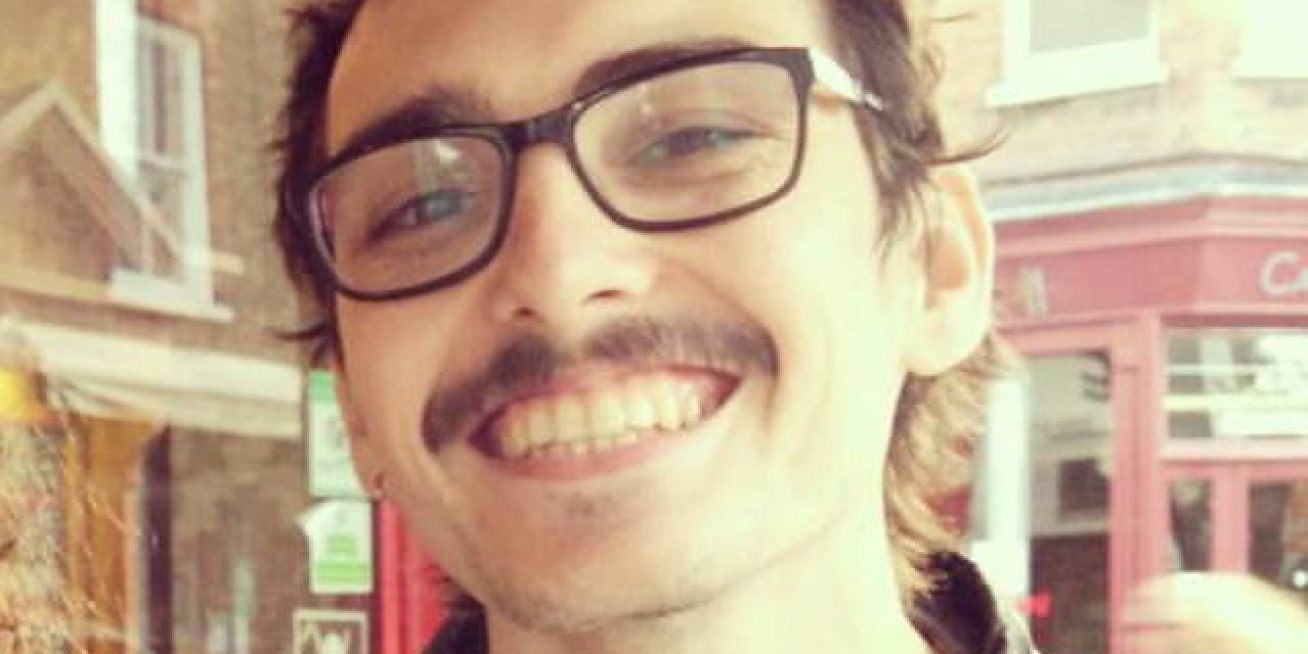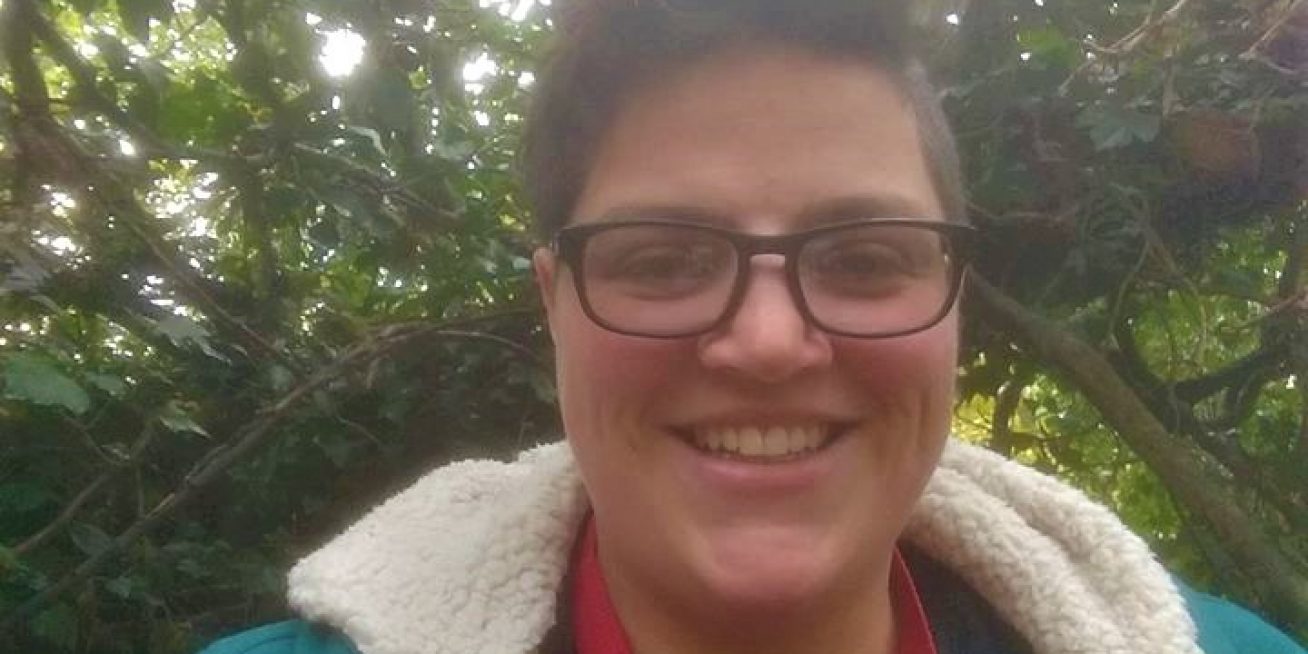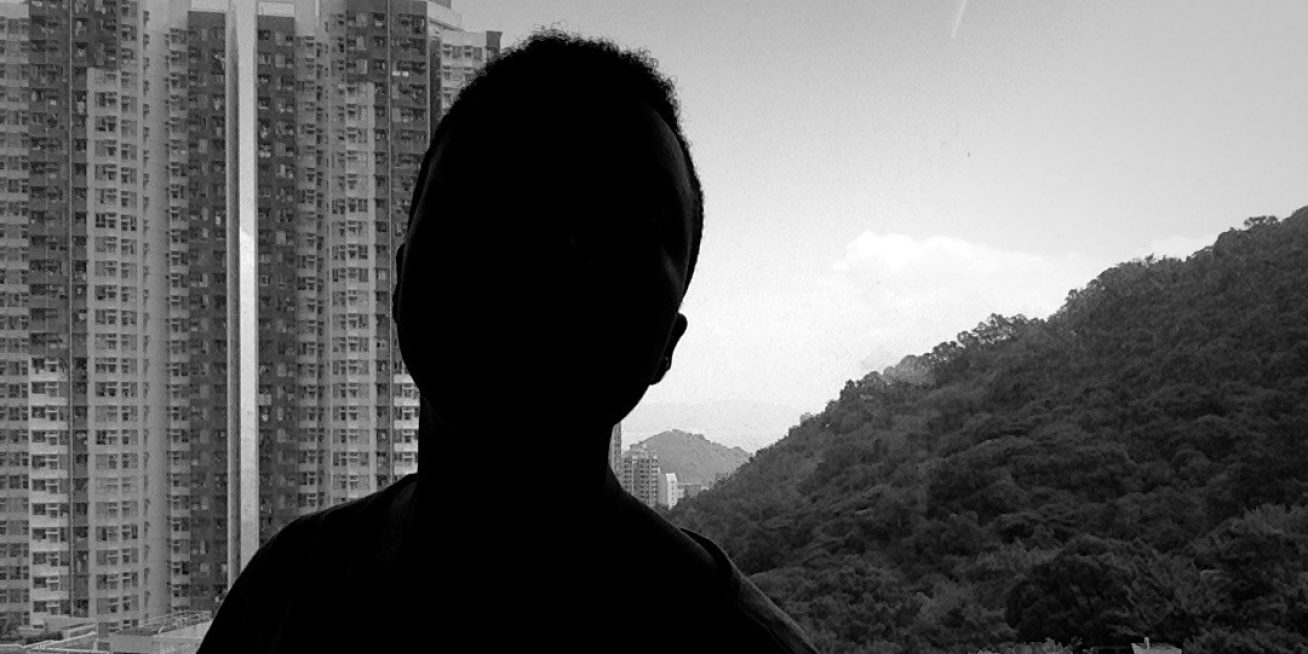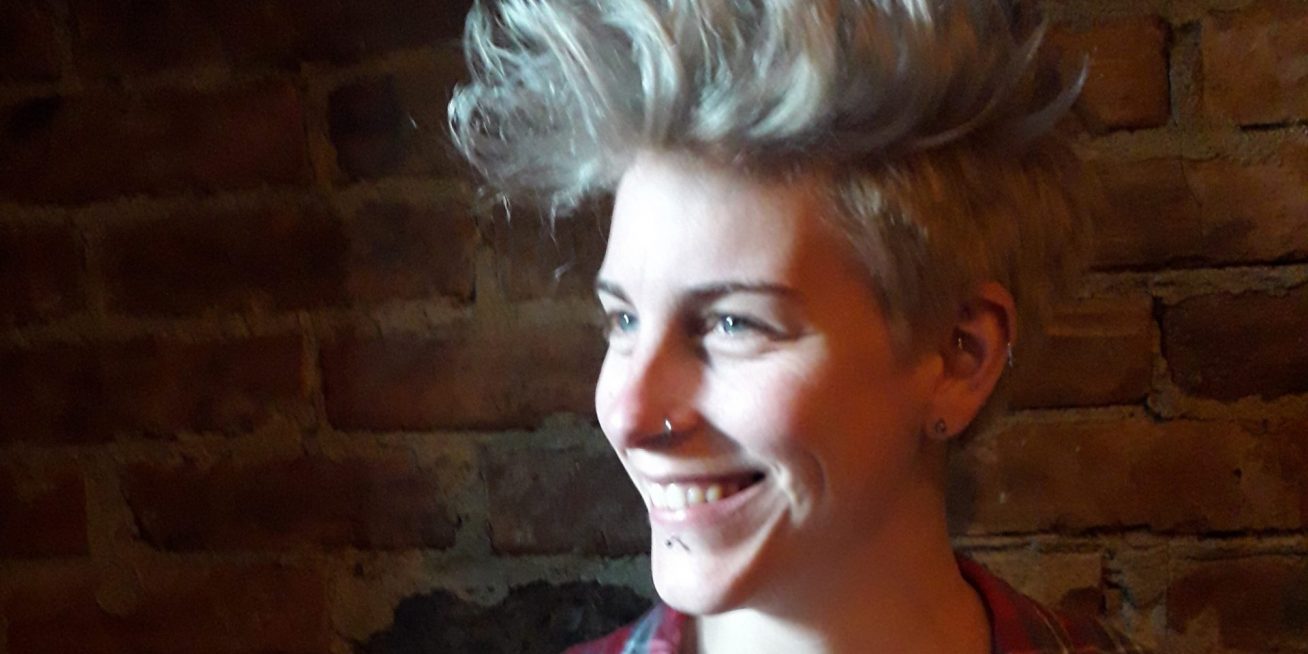Founding the Yorkshire Trans Choir
Claye explains the need for a new choir to suit the voices of trans people, and treats us to a little singing!
You can also listen to Claye singing A song for Trans Day of Remembrance.
TRANSCRIPT
CLAYE: So, I’ve been in choirs for...all my life, really, and I was living in London for about three or four months and there’s a trans choir in London and so I went along to that. And I was also at another choir in London that was, that was, that was kind of…targeted as a, marketed as a, a protesty choir and for change and it was like – and so I was at both of these choirs, and the trans choir in London was, it was looking more at pop songs and things that people knew, and then but the protesty choir was, was like angry things and chants, and the way that the protesty choir was taught was that everybody learnt every part and that, it wasn’t gendered in any way…and a lot of the time, people like…would just sit down and then they’d end up singing a soprano line even if they were usually a bass and that, like…just the way…that it was a really nice choir, and it was never said that it was gender-neutral or that’s how they were doing it, but that’s just how it happened and that was really nice.But the…I think what I didn’t like was that it wasn’t explicitly…talked about that it was, that that’s what they were doing, and I know one of the conductors used a different name, different pronouns in, in different places, and so like it’s interesting that they had decided not to bring that element of themselves to the choir. I’m not sure what their reasons were but yeah…but it felt…and I was - ’cause my dad signed up for me for that choir and so I had, my name…I just pretended that my name was Peter because [laughing] that’s, they’d already printed it on the badge. [Laughs] And so, and I don’t know why he signed up with his name, but… [laughs] But it was like…people…someone said ‘oh, that’s a weird name for a woman to have, Peter’ and I’m like ‘….I’m trans’, like…that…that was not on the minds of the people there and so I think I - when I left London and moved back to Yorkshire I was, I was thinking I want both of those elements together for that, for that nice trans choir and that…the atmosphere and that way of teaching those songs, because that was how, that was inclusive and trans and I thought the way that the trans choir did it, it still kind of enforced the, a binary, because we were still using the soprano, alto, bass, tenor structure, and I, and I was ending up still singing the more woman’s parts, which I didn’t want to be, and so…yeah.
And I was talking to my friends and I was like ‘I really want there to be a trans choir but I’ve never run choirs before [laughs] and I don’t really know what I’m doing’ and my friend was like ‘just do it, no one really knows what they’re doing [laughs], just wing it’. And so I put it out there and some other people seemed to have the same idea at the same time, and so there’s about three of us who are…who are in the more, like, running roles, but we want the choir to be more like…archaic and that everyone brings songs from wherever they want and that we decide what songs we’re singing together and how we sing them and whether we change the words, or what key we sing them in, or…like, how…how we do it in rounds, or whether we do it, or whether we have any harmony or anything. And, and within that, it’s, everything that we’ve…that I’ve taught has been by ear, so we’ve not used sheet music or we’ve used words, but it’s…it’s not…you’re not required to, to be able to know about music. And by teaching everybody every part, people whose voices have changed because of hormones, or…just general life, or not being, or not sung for a while, then they can like, work out the best place for that, the voice to fit. ‘Cause sometimes bass parts but an octave higher is, like, a completely different part to what soprano and alto’s parts are. And so, it’s like, it’s creating a different new part [laughs] It’s like, somewhere else. And the structure of a lot of parts, like, a lot of alto parts are the same and a lot of bass parts are the same and I’m usually singing an alto which is…you get quite boring parts, or like, sometimes you just sing the same note for ages, and, and so then it’s nice to like, be able to learn every part and switch around and see how…yeah, the structure. And I think that’s useful for, like, if you’re trying to compose or trying to, want to sing more, like…I’ve never…written any music or been in that situation because I don’t, I don’t know the theory of it, I’ve just been to choirs. ‘Cause yeah, I come from an art background and…I just…sing.
And so that’s really nice and it’s been going well and I’ve been like…learning how to conduct in the, in the hallway, like I’ve never conducted at all before and [laughs] So, the first session, like…argh, I don’t know, and I don’t know how to like count people in in a way that is the right time, and so…I think it’s really nice that, like I don’t really know what I’m doing [laughs] no one else - [laughs] Like, I think some people are scared because they can’t sing or they don’t know where their voice is, but I don’t know how to conduct either, so we’re all [laughs] in the same like, yeah. Nice community level of stuff, and every session has been really good, and afterwards it’s been like…yeah, a really good feeling. And just singing with people’s really good, and I’m glad that, like, a lot of people have said that they used to be in choirs when they were younger and they’ve not been able to, and, because - people have been to, there’s like, LGBT choirs, but they seem to still follow the structures of, of like, SATB, and…still seem to be quite binary in their, like…who sings which parts, and so this, was, yeah, was really useful to do that. And when people have come and asked me about the choir and I’ve said ‘No, we don’t do that, we just [laughs] sing whatever we want’ and it’s like ‘Oh, cool! Yeah, that’s much better!’. And I’m, saying, like…if people – ‘cause people’s voices when they’re like, especially with testosterone, it like, cracks in really, interesting ways, and because you’re accelerating puberty in a different way to how it happens if you’re a cis man, then it, yeah, it takes different ways of getting used to it, that a lot of medical professionals don’t understand, or…care to look at. Which is…yeah.
INTERVIEWER: When did you start the choir?
CLAYE: Umm…last summer, so 2018 in the summer we started talking about it, and it took us…till…the end of December to get a room. We wanted it to be a free room, and so, the university in Leeds – we were, we were having it – they, it took them – ‘cause we were asking from July [laughs] to have a room, and, and I don’t know why it took them so long. But yeah, since, since January we properly have started, and then we’re planning on just meeting in people’s houses over the summer, and, hopefully be a less [laughs] long time to get a room. ‘Cause I think, yeah, houses are nice but it’s not a neutral space, and I think that’s what nice about the uni.
INTERVIEWER: What kind of things do you sing?
CLAYE: Yeah, so I’ve been teaching more protesty songs. Things, kind of, from, like, the folk revival in the Sixties and Seventies, and also more modern music. And there’s things that I’ve picked up from choirs from – like, the kind of smaller little chanty songs that you – warm up songs, so there’s a lot of those, and then as we’ve been learning them, people are like ‘Oh, let’s sing different words’, so we’ve been making them more trans and more [laughs] angry and specific. So, there’s one that we’re telling TERFs to fuck off, which is a good one. And it doesn’t quite –
INTERVIEWER: Can you give me some lines? [Laughs]
CLAYE: Yeah, I can, I can sing it if you want.
INTERVIEWER: Yeah, go on, please!
CLAYE: [Singing] I am a tower of strength, within and without,
I am a tower of strength within.
Let all burdens fall from my shoulders, all anxiety slip from my mind.
Let every TERF be silent, every TERF fuck off. [Laughs]
[Interviewer claps]
CLAYE: Yeah, so the, yeah, the last line of those, they weren’t about TERFs originally. But, yeah, and, the way, yeah – so people in the choir were like ‘no, let’s sing something else, ‘cause those words are’ – ‘cause it’s like, ‘let, let every shackle be looser’, I think is, which is a bit like…shackles, we don’t really use that as a, those terms any more. Yeah, and so that’s – and some of the people in the choir have been singing, like, more pop songs – we did Creep by Radiohead, and we’ve got, we’re gonna get the music to an Abba medley [laughs] We’ve found a…like, a really…like, classical choral thing, mad-ri-al, I’m not sure how you say it, version of All Star, which is [laughs], that’s gonna be – I’m not sure if we’re up to that, but [laughs] that’s, I think that’s the next – we’ll see how that goes.
INTERVIEW: Do you, do you see the choir as activism?
CLAYE: Umm, yeah, I, I think so. [Long pause] And [long pause] – ‘Cause I’ve been involved in lots of other activism before and I think...I’m looking more at the ways in which community is activism rather than…like, going out - like building our community and giving space for things to happen. I think there was a nice quote from this book that it was like, ‘being queer is, like, not…demanding to be included’ – is this, is this relevant? – but like not, not like being included, but it’s like not letting yourself be excluded, and so this trans choir is like, to not, we’re not, like, we’re, we’re not allowed in, we don’t fit in normal choirs and so we’re creating a space for us to have that, and we’re not like, asking for the inclusion in normal choirs because it…they’d have to completely restructure the whole choir. We’re like, creating a space that is…for us, and like, for our needs.
END







